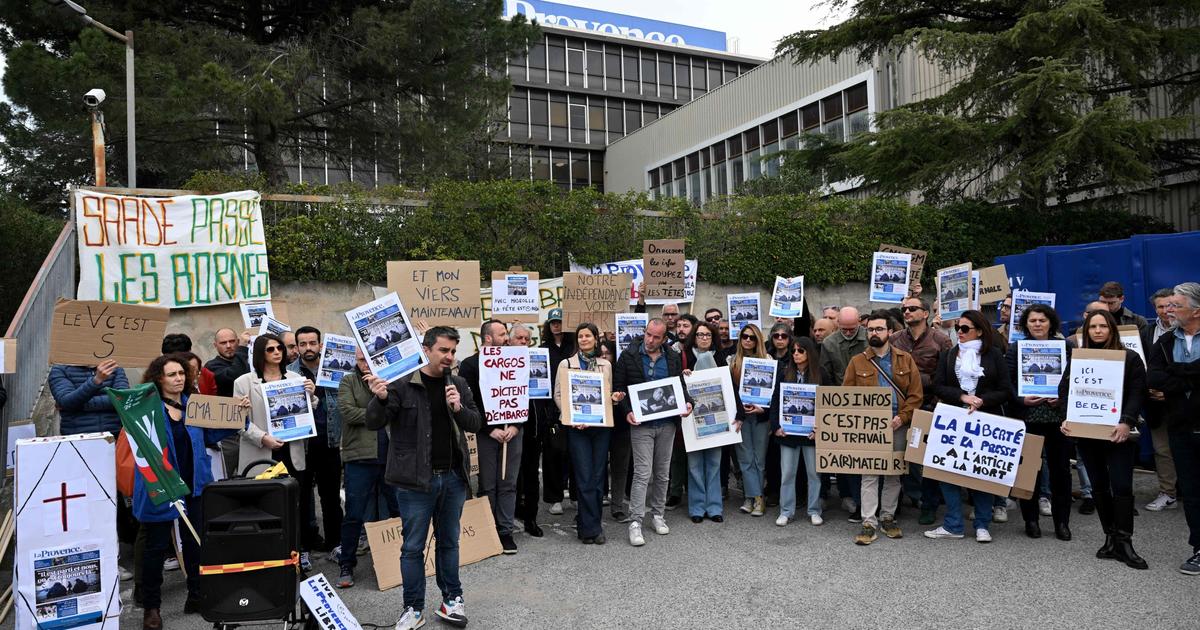Four women in their thirties who seek to be independent in the face of a State that does not allow it.
This is the argument of
Easy
, the new Movistar Plus+ series premiered on December 1, starring Anna Castillo (Nati), Coria Castillo (Àngels), Natalia de Molina (Marga) and Anna Marchessi (Patri).
"It is the story of four cousins who live together," she says in an interview with EL PAÍS Marchessi, who is making her debut as an actress.
But Coria is the first to hit the mark: "When I read the script I didn't think they had functional diversity."
The key to this fiction, according to its protagonists, is that disability takes a backseat.
A plot that deals with almost obligatory tubal ligations, the fear of being kicked out of the house and taking away your freedom, of not cleaning up the dust in the hours before they do an inspection... all under the tutelage, often paternalistic , of the State.
The pilot chapter marks the path of a series that mixes the drama of the four young women with humor.
The comic is an essential part for the message to get through, or so Coria, who is also a humorist, thinks: “Giving it up is losing realism because in life not everything is suffering.
Even if the subject had been addressed intensely, the viewer would have rejected it”.
Marga, who has an intellectual disability, knows her body and her desires perfectly and, apart from "showing her pussy in the first chapter", as Anna recounts, she suffers from the imposition of the State to have her tubes tied.
“They are women who are constantly judged and who receive the message that being who they are is wrong,” says De Molina.
An argument against which Nati (Anna Castillo), who has a clear political and social will, constantly attacks:
From left to right: Anna Marchessi, Coria Castillo, Anna Castillo and Natalia de Molina in the series 'Easy'.
They cannot sleep outside, smoke, take their partners home, forget to go shopping or clean the dust one day, have sexual relations... "They are limited in any area of their lives," protests Coria, "after the premise to protect them because of their disability, they do not consider what they can do with their abilities”.
Even so, De Molina defends that "they are not independent women, but they are free".
The actress would love to have the freedom of spirit of her character: "She is happy because she enjoys things that do not cost money and that makes society very uncomfortable."
She, although she also carries the sadness of realizing the problems that this causes her.
The four actresses took a month and a half to build the characters.
In the process they visited supervised apartments, in addition, Anna attended dance classes and De Molina, who stars in the most impressive transformation of the series, attended the speech therapist to find Marga's voice.
“At first I thought I wasn't qualified, but something in my mind opened up and my world expanded in such a way that all I saw were inspirations related to Marga,” she explains.
The Goya winner for best leading actress of 2016 found her muse: her name is Alma and she took all the stereotypes (facial movements), absences and her voice from her.
A total change on the screen that erases all traces of the actress to make way for a character that takes on a life of its own and from which phrases slip through in the interview.
Meanwhile, Anna assures that it was difficult to create the characters because no two disabilities are the same: "It was difficult to find someone who looked like Nati, but among the people we met I saw things that she had."
Nominated for a Goya as leading actress, Anna has not stopped making women take up arms and, in this case, Nati, due to her disability, is the most overwhelming of all.
"There is one thing about Nati that makes me very envious: not having a filter," jokes the interpreter who assures that she is really like that, but she represses him for "being nice."
Àngels and Patri are the other two that complete the quartet.
Coria has incorporated into her life the way Àngels sees life: without prejudice and with peace.
“He doesn't ask why each one does things, he lets them be free,” she explains.
Patri is the most hard-working and upright of the three, she has never broken a rule and she demands it for the rest.
“She has had to suppress her instincts to achieve what she has,” Marchessi laments.
But the reality is that, after the insistence of her sister Nati, who calls her "posh" or "capitalist", she lets her hair down.
Freedom knows no limits.
#EASY now available in full at #MovistarPlus.
pic.twitter.com/Pk6ZoPHCNG
— Movistar Plus+ (@MovistarPlus) December 1, 2022
They were all afraid to face this series, "if it weren't like that, we would be foolish," De Molina blurts out before three nodding heads.
Except for Anna Marchessi, all the interpreters are normative people.
The two veterans are clear: "We are actresses, our job is always to play another person and show her reality."
In addition, De Molina adds: "As women we have much more in common with them than what separates us."
Marchessi downplays this fact because her process has been the same as that of her colleagues: "Not because I have a physical disability like mine have I had to work differently, in many things Patri is at the antipodes of what I am."
Coria, who makes her debut as an actress in the role of Àngels and who still doesn't know if she has managed to act well, says: “Our maxim was to make it realistic and with a lot of respect,
that nobody could be offended by making a caricature”.
For De Molina it is a sensitive issue, since putting a person with an intellectual disability to perform some sex scenes could "be a violation", although he hopes that this series will open doors for people in the group who want to be actresses.
Controversy has surrounded the premiere of the series.
Cristina Morales, author of the book
Lectura fácil
, on which the series is based, wrote an opinion piece in which she renamed the fiction “Nazi” and complained that Anna R. Costa, director of the project, had sweetened the paper of social services.
For the actresses, the author has the right to complain, but she has to understand that one sticks to literary language and the other to audiovisual.
“It is frustrating that she gets involved in this because we stopped talking about what is really important: the characters.
We are giving them a voice and we want them to be heard”, laments Marchessi.
De Molina raises the complaint a little more: "In the end we end up doing the most patriarchal and ancient thing in the world, which is to face two women when I celebrate them both."
The path that the four protagonists will follow is left open in the last chapter.
Shouting "anarchy", the young women embark on what seems to be their next adventure.
Nati pedals a rickshaw that they have stolen and it is the moment in which they are most free.
Subscribe to continue reading
Read without limits
Keep reading
I'm already a subscriber

/cloudfront-eu-central-1.images.arcpublishing.com/prisa/LTIM7MEBLZDQZJYSL6WVBKQDFU.jpg)


/cloudfront-eu-central-1.images.arcpublishing.com/prisa/PWWJZJX4RNHDPFBDM57S7RFHGQ.jpg)




/cloudfront-eu-central-1.images.arcpublishing.com/prisa/K63BQCT5FHKKXUWRSFYE4KBNFI.jpg)